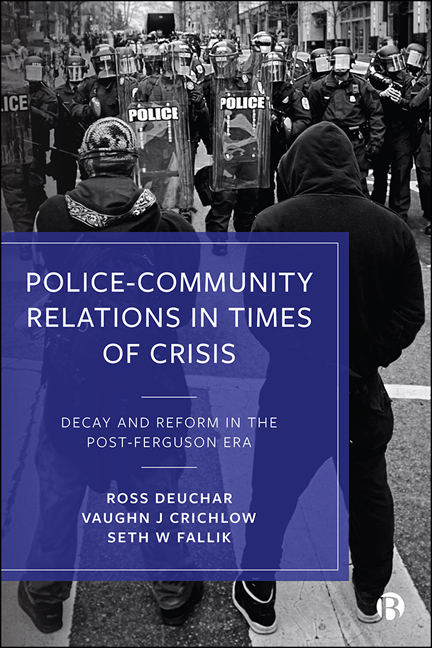2 - High-Profile Shootings, the Media, and Police Legitimacy
Published online by Cambridge University Press: 21 December 2021
Summary
As we suggested in the previous chapter, policing in America is facing a crisis of confidence. Unfavorable perceptions toward police are a pervasive challenge for municipal agencies, particularly in communities impacted by high levels of gang-related crime where police departments are understaffed and under-resourced (Mock, 2017b; Police Executive Research Forum, 2019). In an era of 24-hour news cycles, social media activism, and community advocacy, there is growing public outrage due to perceived abuses by the police. Videos on social media depicting police-involved shootings have also led to increased scrutiny, and this has made the work of building community trust even more challenging (Maguire et al, 2017). Moreover, if there is a lack of support for police, residents will be unwilling to cooperate with the police and assist with investigations, and such attitudes can undermine the ability of police officers to do their jobs effectively (Wolfe et al, 2016). In order to understand attitudes toward police in the post-Ferguson era, in this chapter we discuss the rubric of procedural justice and police legitimacy perceptions. We then explore the historical roots of police–community conflict and the ongoing confidence gap in attitudes toward police, and conclude by discussing the impact of BLM and digital media in general as a tool for collective action and empowerment.
Police legitimacy and the confidence gap
Extant research on legitimacy owes much of its framing to Max Weber's work on political legitimacy and the role of legal norms in shaping the relationship between the individual and State. These ideas influenced the contributions of Tom Tyler and others in the field of psychology. These researchers conceptualized legitimacy in terms of subjective beliefs about right and wrong and the appropriate use of governmental power, and this has led to a large body of research on the determinants and consequences of police legitimacy (Tyler, 2006). Therefore, the influence an authority or institution exerts on people is not based on the capacity to use force but rather on the institution's decision-making and whether the rules it enacts are seen as proper and right, and whether, as a result, they ought to be followed.
- Type
- Chapter
- Information
- Police-Community Relations in Times of CrisisDecay and Reform in the Post-Ferguson Era, pp. 21 - 36Publisher: Bristol University PressPrint publication year: 2021



